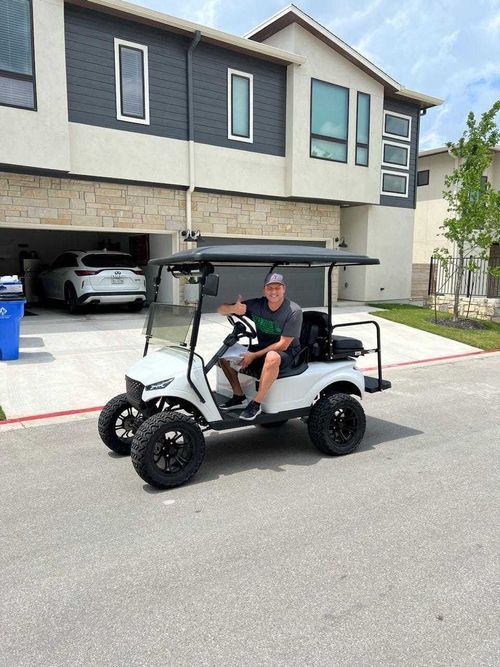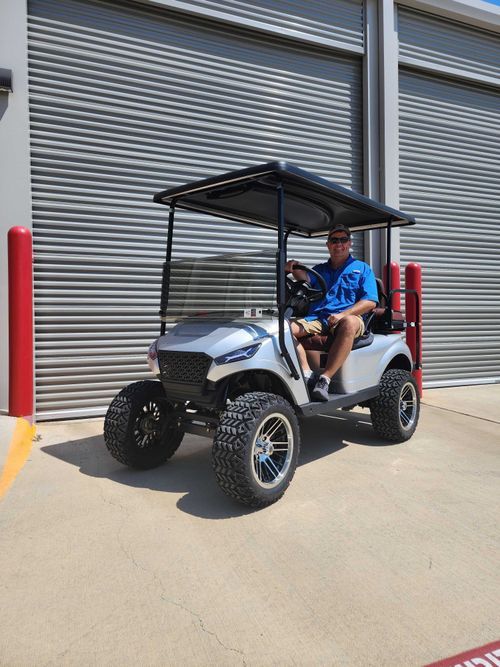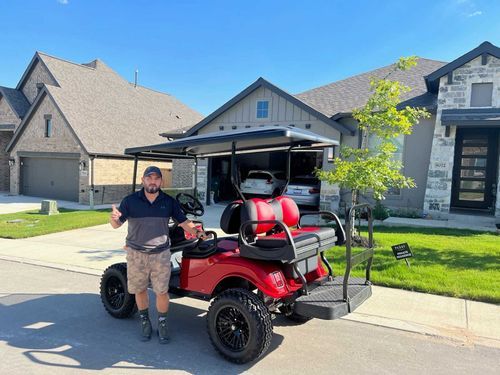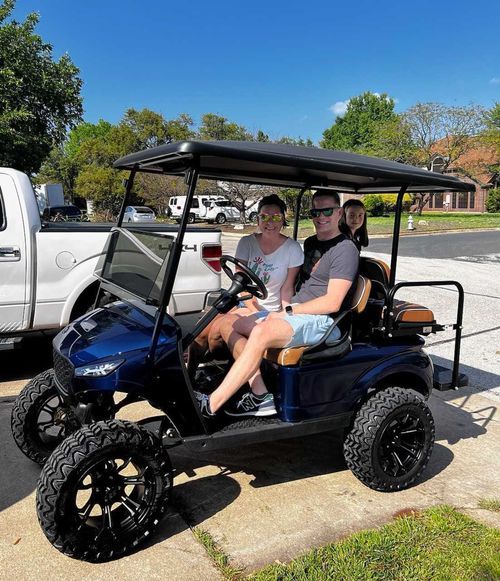
How To Make a Golf Cart Street Legal in Texas
- Michael
- January 20, 2024
- Golf Cart Tips
Navigating the Path to Street Legality

Prerequisites: The Essential Building Blocks
1. Speed Limit Compliance
2. Illumination Essentials
Adequate lighting is paramount for visibility, particularly during low-light conditions. Ensure your golf cart is equipped with working headlights and taillights to ensure proper illumination and safety for both you and other road users.
3. Rear Visibility Enhancements
4. Slow-Moving Vehicle Emblem (SMV)
5. VIN: A Unique Identity for Your Golf Cart
6. Golf Cart License Plate:
Enhancing Your Golf Cart's Roadworthiness
Brake System Upgrade: Enhanced Stopping Power
Golf carts typically come equipped with basic brake systems, which may not provide adequate stopping power on public roads. Upgrading to a more robust brake system is highly recommended to enhance your golf cart's safety and control, especially when maneuvering at higher speeds.
Alerting Other Road Users: The Importance of a Horn
A horn serves as a crucial tool for alerting other road users of your presence, particularly in low-visibility conditions. Install a horn that meets the specifications outlined by Texas law, ensuring you can effectively communicate your intentions to other drivers and pedestrians.
Optional Seat Belts: An Extra Layer of Protection
While not mandatory in Texas, seatbelts are highly recommended for added safety. Installing seat belts for all occupants can significantly reduce the risk of injuries in the event of an accident, providing peace of mind and protection.
Navigating the Legalities: Ensuring Compliance with Local Regulations
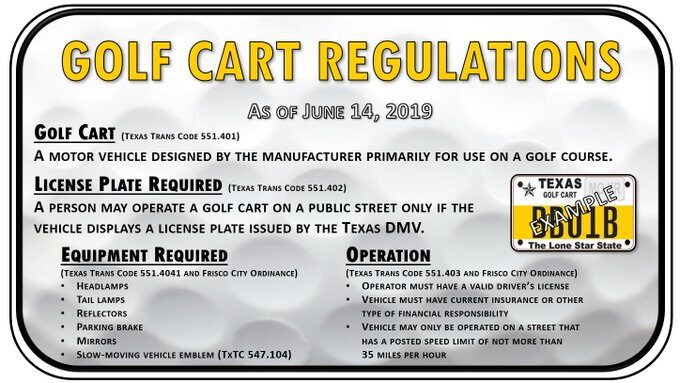

Securing Insurance: Protecting Yourself in the Event of an Accident
Conducting a Thorough Inspection: Ensuring Roadworthiness
Visual Assessment
Inspect the entire golf cart for any signs of damage or wear and tear, particularly on critical components like brakes, tires, and electrical systems.
Lighting Check
Ensure all headlights, taillights, brake lights, and turn signals function properly to provide adequate visibility at night and in low-light conditions.
Performance Testing
Conduct a test drive to assess the golf cart’s handling, braking, and overall performance. Address any issues promptly to ensure a safe and enjoyable road experience.
Operating Your Golf Cart on Designated Roads
Obey all traffic laws
Treat your golf cart like any other vehicle on the road and follow all applicable traffic signs, signals, and lane markings.
Yield to pedestrians and other vehicles
Pedestrians have the right-of-way, so be extra cautious when approaching crosswalks and sidewalks. Yield to oncoming traffic and merge safely when making turns or changing lanes.
Use designated lanes
Golf carts road legal are typically restricted to designated bicycle lanes, if available. If not, operate your golf cart on the shoulder of the road, leaving the main lanes clear for faster-moving vehicles.
Maintain a safe following distance
Maintain a safe distance from the vehicle ahead of you to avoid collisions. Adjust your following distance based on road conditions, traffic flow, and visibility.
Avoid excessive speed
Stick to the posted speed limit, which is typically 25 mph for street-legal golf carts. Excessive speed can compromise control and increase the risk of accidents.
Staying Informed and Ensuring Ongoing Compliance
Embark on a Safe and Legal Road Adventure with Golf Carts of ATX
Making your golf cart street legal in Texas may seem like a complex process, but with the right knowledge and resources, it’s entirely achievable. By understanding the legal requirements, making the necessary modifications, and utilizing Golf Carts of ATX services in Austin, TX you can enjoy the convenience and fun of driving your golf cart on Texas roads safely and legally. Contact your trusted golf cart dealer in Austin and nearby.

Frequently Asked Questions
Can I drive my golf cart on any Texas road?
Do I need a driver's license to operate a street-legal golf cart in Texas?
How much does it cost to register a golf cart in Texas?
Can I make modifications to my golf cart myself?
Are there any restrictions on when I can drive my golf cart?
Ready for hassle-free golf cart repair? Reach out today and get back on the green in no time!

